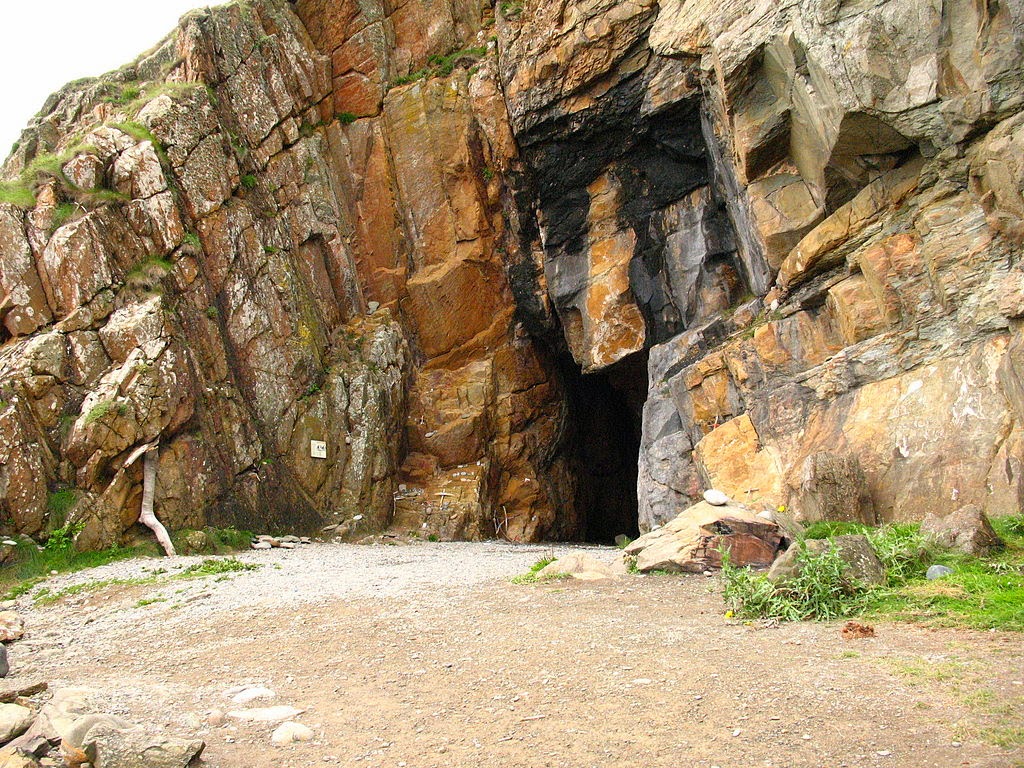Just when I think I've seen it all, I come across a new name that completely surprises me. Which names so far were the most 'surprising' to you as names (or as names on that gender)?
Here are the 7 for today, which brings the total number of names you've learned on this blog this year to 389. And we have not yet finished February.
GIRLS
Katara
 Laurela -
Laurela - Spanish variant of the Latin 'laurel' referring to the laurel tree. This is pronounced 'lao
ray lah'.
Marieke Dutch nickname for Maria, which is a Latin form of the Hebrew name Mary, which may derive from the Egyptian 'mri'.
Pythias - Greek. I originally posted this as a boy's name, but I was mistaken. Pythias was a woman's name and the name of the wife of Aristotle (so I am doubly embarrassed for the mistake).
BOYS
 |
| Cave of St. Ninian in Scotland |
Ninian- name of a Christian saint who lived in the 4th century A.D. and who converted Picts to Christianity. Wikipedia outlines various sources and ideas about who he was, namely that he was a Briton and would have spoken a Celtic language. They also point out arguments that he spent time in Rome, had a Spanish mother, died in Whithorn, Scotland, spent time in Ulster, Ireland, and dedicated the church he founded to Saint Martin of Tours. Since one suggestion is that a man known as Finnian is one and the same with St. Ninian, I thought it worthwhile to include information on that name, and man, should it have relevance to the origin or meaning of the name Ninian. Finnian was a Christian missionary in Ireland and his name means "the white head", which would be a reference to his fair hair, according to Wikipedia. He seems to have lived a century and a half later than St. Ninian is supposed to have lived, but he is supposed to have gone to Rome also (perhaps not such an unusual accomplishment for a medieval saint, and many people may have the same or similar name, even lives, yet be separate people). Also he spent time at Whithorn, which is connected to St. Ninian. Whithorn seems to derive from the Old English "hwit aern" which means "white house". I don't know if there could be any connection between the name of the founder and the name of the town. No one seems to suggestion any connection between the name Niniane, a woman's name from Arthurian legend, though I cannot figure out why. I will be very happy when I find out more about this name's origin and meaning. Or, a more satisfying answer to the questions 'where did it come from' and 'what does it mean'?
Ocelus - possibly Silurian, a Celtic god important as a protector.
Rulon - variant of the Germanic name Roland, meaning 'famous landowner'.
 Laurela - Spanish variant of the Latin 'laurel' referring to the laurel tree. This is pronounced 'lao ray lah'.
Laurela - Spanish variant of the Latin 'laurel' referring to the laurel tree. This is pronounced 'lao ray lah'.
No comments:
Post a Comment